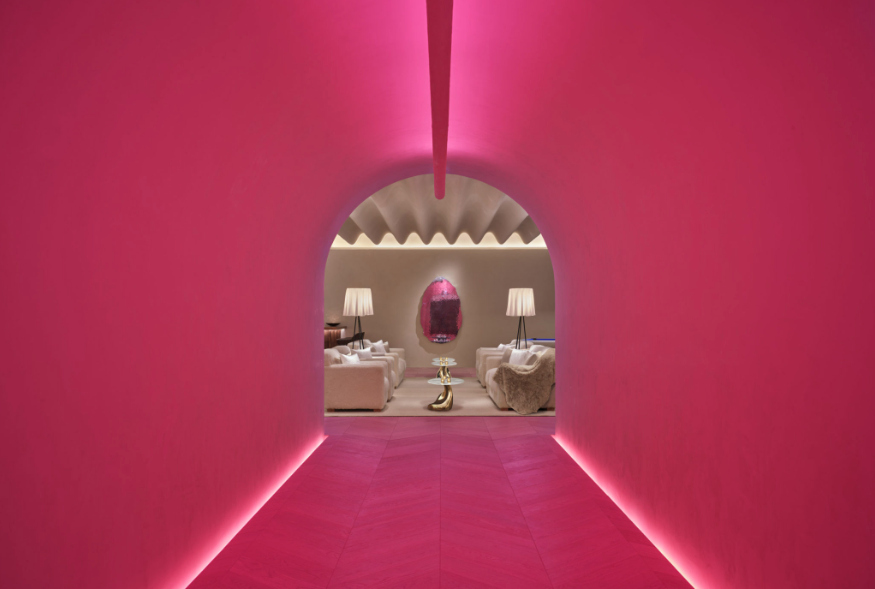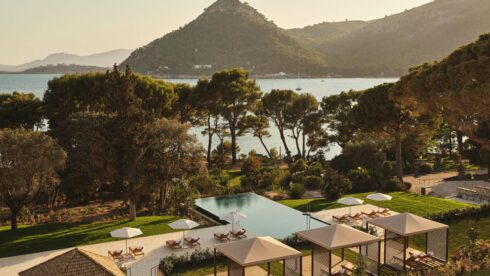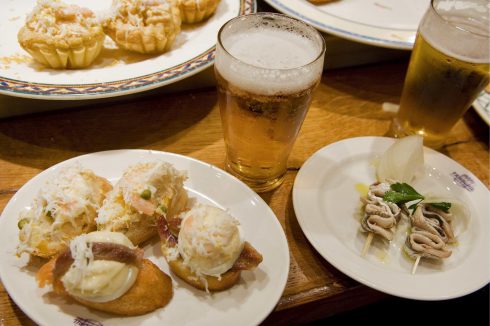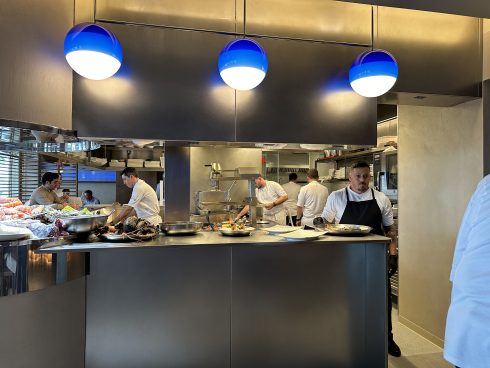EASTER is the unofficial start date for the Spanish tourism season, and with hotels averaging 85% occupancy during the holiday week, this year looks set to be a lot better for Spain’s hotel industry than the last two.
If you use hotels rather than run them, it’s easy to forget how apocalyptic everything looked back in 2020.
Manuel Vegas, president of the Spanish Association of Hotel Association, told me at the time, “I’ve been through the economic crisis and the Madrid train bombing, but they were phases to be endured after which we moved on. It’s this uncertainty, the unknowing that is having a negative effect. However, we have to keep going for our children and future generations. I believe we’ll get out of this. I want to be optimistic.”
Two years on, and there is optimism aplenty – even some swagger.
In 2021, €3.18 billion was invested in Spanish hotels, despite travel restrictions, further waves of Covid, and low visitor numbers.
“The reaffirmation of Spain as a preferred destination for hotel investment at an international level, the increase in the number of large funds or players wanting to enter in Spain,” and the investment so far this year, says Laura Hernando, managing director of the hotel department at Colliers International, make a continued investment of €2-3 billion a year likely over the following years.
Super-luxurious properties operated by major international brands are opening across the country. The launch of Barcelo’s Hotel Canfranc Estación, a Royal Hideaway Hotel, in Huesca (Aragon) at the end of the year is one of the top hotel industry events worldwide, and – ojala – should make the perfect grand finale to a year of recovery.


In the early pandemic, it was feared that one out of every four hotels along the Costa del Sol would shut down for good.
Instead there are dozens more hotels on the way, some rising phoenix-like on the site of hotels that have stood empty for decades.
From the long-abandoned Hotel Don Miguel comes Club Med Magna Marbella [MAY 14] a luxury, all-inclusive, 14-hectare family resort with five pools and 500 rooms.
And from Hotel Byblos (Mijas) which hosted loads of celebrities in the 80s and 90s including the Rolling Stones and Princess Diana but closed when sold by Alan Sugar in 2010, comes the stylish Hyatt hotel, La Zambra (opening in June).
There’s more new life on the coast – vibrant, adults only life in fact – at Hard Rock Marbella, which will offer visitors 385 rooms and a good time from June.
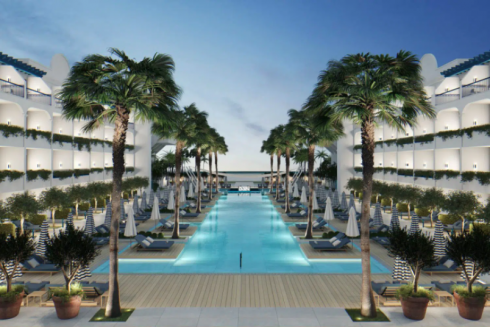
The sprawling 5-star METT Hotel & Beach Resort opens for summer to the west of Marbella; the Silken Maravilla Palace opens after a two year delay in Estepona; and further west, but within easy access, there is Lionel Messi’s sixth Hotel MIM newly-opened in Sotogrande.
If you wait until 2025 to visit the Costa del Sol, you’ll also have mega-brands W Marbella and Four Seasons Hotels and Residences (both in Marbella) to choose from.
So, after the worst period in history for Spanish tourism, it seems, as Javier Hernández Rodríguez of AEHCOS (the Association of Hoteliers of Costa del Sol) says, ‘the coast has changed enormously for the better’.
“Establishments have been modernised, their category increased. International tourists who visit us after the pandemic will notice a change for the better – not only will their perception of destinations such as Torremolinos, Benalmadena, Fuengirola, Nerja, Estepona, and Marbella change, but they’ll be surprised by the new level of professionalism,” he explained.
Toni Mayor, president of HOSBEC, feels much the same way about Benidorm: “Hotels closed or changed hands like the Fenicia, Rosamar, Selomar and Primavera Park but they are all reopening, upgraded.”
The grand old Benelux is due to reopen as Hotel Mercure Benidorm on June 1, and Pierre & Vacances is stepping in to spruce up and manage Hotel Palm Beach. “Luckily, we had five strong years before the pandemic; not one hotel has suffered. Easter saw occupancy similar to 2019’s, mainly British, so we are all happy.
“There’s a lot of faith in the resurrection of tourism, in the industry’s resilience.”
It’s not just beach resorts that have benefitted from multimillion investments. The rapid transformation of Madrid’s hotel landscape (and outlook) is breathtaking.
In August 2020, 70% of the capital’s hotels (including all but four of the 5-star properties) were closed, with Mar de Miguel of Madrid hotel association AEHM saying it was “too early to know how many will make it through the crisis”.
That Four Seasons Madrid chose to launch one month later showed enormous faith in the bounce back ability of Spanish tourism.

“Completely!” says Marta Centeno, the hotel’s director of communications. “The decision was made considering the situation of the pandemic at the time and with all safety measures in place. It was a way to bring a ray of sunshine following the strict lockdown, some positivity to the market and to Madrid.”
Given the strict measures that prevented travel in and out of the city, business was understandably slow at the start but this year bookings are strong.
“Madrid is becoming an international hotspot and we are attracting visitors that would have never considered the city in their travel plans,” insists Centeno.


Hotspot is an understatement. The capital is a showcase for white-hot hotel brands and designers – and they just keep coming. The Madrid EDITION opened in March, near Puerto del Sol, with interiors by John Pawson and Ian Schrager, while Philippe Starck is creating the look of the Brach Madrid (on Gran Via) for 2023.
Among the upcoming attractions are the Thompson Madrid and JW Marriott and plenty more visits by Robert de Niro who opens a Nobu Hotel here next year.
But how was it for hoteliers trying to work through the pandemic? According to Jesús Menéndez, CEO of Hotel Mystery Guest, more than 5,000 out of the nearly 18,000 hotels, hostels and pensiones across Spain would have gone bust if it hadn’t been for ERTE, the government job retention plan. As it happens, most did alright, their business fuelled by domestic tourism, the rise of the Spanish Staycation.

OKU Ibiza was preparing to launch when the first lockdown hit. They delayed it by a year, but “as we approached the 2021 season, travel restrictions were still in place. It was impossible to predict how the Covid situation would develop,” says brand manager Claire Morrissey.
“But we were confident that post-pandemic the appetite for travel would resurge, and we had bold plans. So we decided it made sense to push forward with the opening – and it was the right decision! Our first year’s success surpassed all expectations.”
And this year is looking so good that they are adding a new restaurant and wellness experiences, and the brand is continuing to expand to new locations.
James Stewart of Grupo Califa, with three hotels in Vejer de la Frontera (Cadiz) and one on the beach, says the pandemic was an opportunity to attract domestic tourists.
“As a year round average 45% of our clients come from outside Spain, but during the pandemic 98% of our business was from national tourism,” says Steward.
“At first, with the municipal lockdown, the only potential clients lived locally, which was pretty useless. But both 2020 and 2021 summers were very strong – in fact we had our busiest summer ever last year, and that’s with no international tourism at all.
“People from Gibraltar who’d traditionally go to Malaga couldn’t during the provincial lockdown because they cross the border at La Linea, which is in Cadiz. They started coming our way. We got so many new clients. The Spaniards who previously didn’t come are now booking ahead and the Brits can’t get a room.
“We had losses, but on reflection, we’ve come out of it very well.”
“When we reopened, it was scary,” says Mona Arain Crites of Hotel al Lago, a small hotel inland in Zahara de la Sierra.
“We weren’t sure what was going to happen. First there was no international travel, though luckily we have a huge Spanish client base we could rely on, then masks and safe distancing meant lower capacity. Now we are fully booked, but struggling to find the staff because people are used to being at home. Covid is still an ever-evolving problem, and it’s just hard to know what’s coming next.”
Other than a lot of hotels: As many as 75 hotels are set to launch over the coming years (according to TopHotelsProjects) adding another 14,225 new rooms between now and 2025. Finding and training staff is a concern, as is recovering and sustaining international visitor numbers, then building them up to a new record high.
Inbound flight reservations for the summer are down almost a quarter 22% compared to 2019. However, Juan Gómez of data analysts ForwardKeys says this ‘really encouraging’ given the tendency, since the start of the pandemic, for late booking’. The general feeling among industry experts is that after two summers of thwarted travel plans the dam is about to burst with the pent-up demand.
Today, Manuel Vegas is feeling a bit better: “The pandemic isn’t over, but it has subsided, thank God, and, using common sense, we can move forward. Spanish tourism has recovered at a very significant speed, thanks to the internal drive and European tourists. We are almost at 2019 figures. We are always dependent on external elements that cannot be manipulated, such as the fuel crisis and Ukraine.
“But,” he adds, “there is optimism”.
READ MORE:
- Travel Spain: How the pandemic saw Madrid transform into a luxury tourism destination
- REVIEW: Style and substance after stunning overhaul of Madrid hotel Rosewood Villa Magna
- Mandarin Oriental Ritz: Welcome to the lap of luxury in Spain’s capital Madrid

